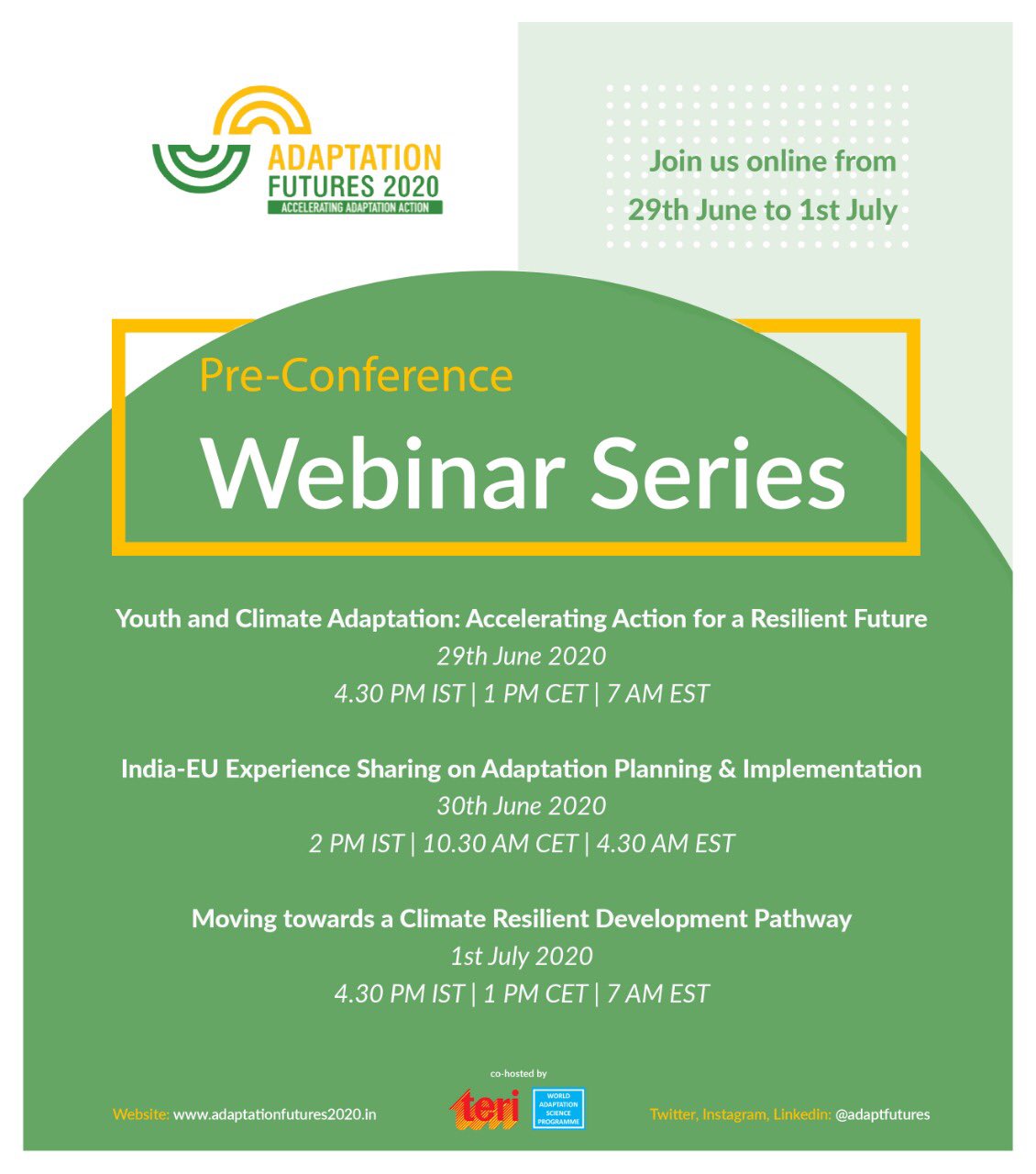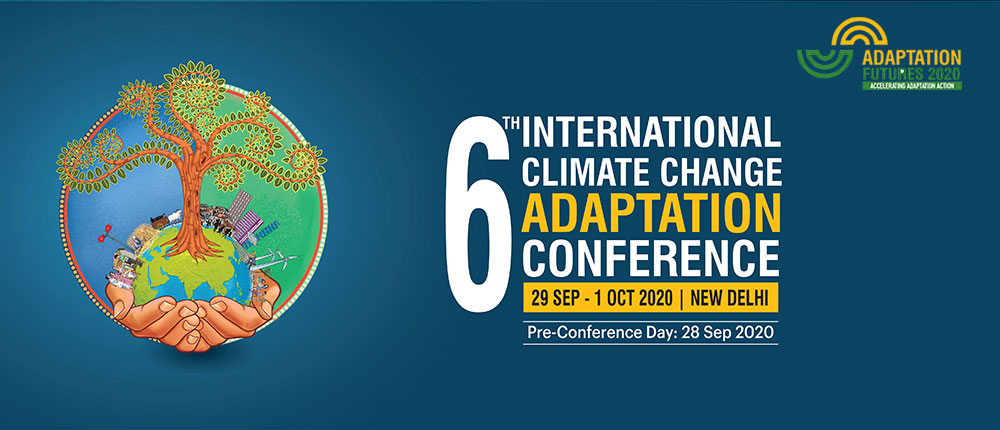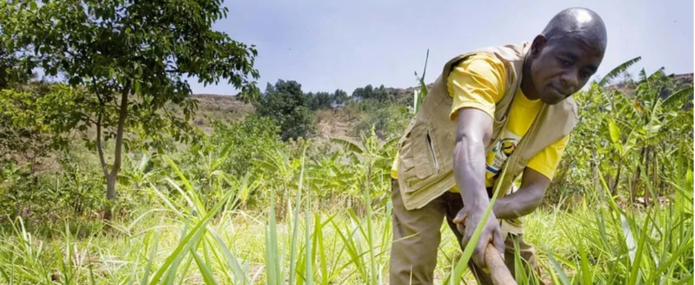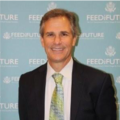About Adaptation Futures 2020
TERI will co-host Adaptation Futures 2020 with the World Adaptation Science Programme (WASP) in Delhi from September 27 - October 1, 2020. As a premier event in the global adaptation spectrum, Adaptation Futures is a unique platform to facilitate a dialogue towards action oriented solutions from a diverse range of stakeholders that includes academics, practitioners, scientists and policy makers across the world.
There is a significant need for international cooperation in meeting the global goal of adaptation with an aim of enhancing adaptive strengthening resilience and reducing vulnerability under the Paris Climate Agreement. In this context, Adaptation Futures 2020 will be an ideal opportunity for India to give visibility to the adaptation requirements of developing countries, and generate a significant dialogue around actionable solutions.
TERI will co-host Adaptation Futures 2020 with the World Adaptation Science Programme (WASP) in Delhi from September 27 - October 1, 2020. As a premier event in the global adaptation spectrum, Adaptation Futures is a unique platform to facilitate a dialogue towards action oriented solutions from a diverse range of stakeholders that includes academics, practitioners, scientists and policy makers across the world.
There is a significant need for international cooperation in meeting the global goal of adaptation with an aim of enhancing adaptive strengthening resilience and reducing vulnerability under the Paris Climate Agreement. In this context, Adaptation Futures 2020 will be an ideal opportunity for India to give visibility to the adaptation requirements of developing countries, and generate a significant dialogue around actionable solutions.
Building Momentum for Adaptation
As Adaptation Futures 2020 will be the first Adaptation Futures conference to be held in Asia, this will be the ideal opportunity to flag adaptation challenges in the Asian context, marked by diverse political, social, economic and cultural characteristics, and accelerating climate-related vulnerabilities.
This conference is ideally placed for India to build on the momentum on adaptation generated by the Global Commission of Adaptation launched in October 2018 and contribute effectively to the Global Adaptation Action Summit in October 2020.
To know more about the conference, visit the website.
To know more about the conference, visit the website.


















